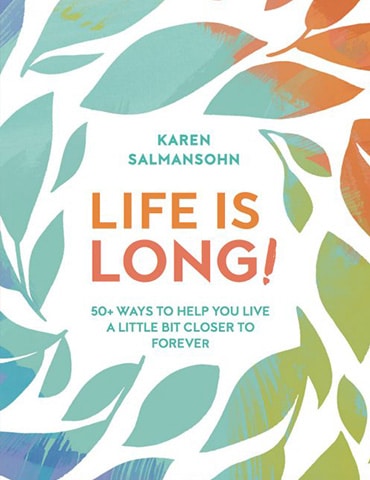
Read on to learn the very best diets and foods to help you to live a healthy lifestyle and feel at your best.
Reports suggest that Americans spend around 10% of their income on affordable and healthy diets.
Still, whereas most people appreciate that a healthy diet goes hand in hand with an active lifestyle, choosing what to eat can be challenging.
On the same note, some people sign up for expensive restrictive diets, which are often difficult to adhere to and rarely live up to the hype.
I personally am against restrictive diets! I prefer mindful and balanced eating of the foods you love – with an emphasis on healthier food choices..
Eating a balanced diet not only means a healthy lifestyle. It also means an improved quality of life, because you will feel good in your body, enjoy lots of energy and experience a better clarity of mind.
I’m sharing this info because I am bestselling wellness author.
I founded a nutritionist recommended online program called The Stop Emotional Eating Course!
I love sharing insights and techniques to help people to enjoy their healthiest life.
The Best Diets and Foods To Live A Healthy Lifestyle
Read on to learn the very best diets and foods to help you to live a healthy lifestyle and feel at your best.
1. Omega 3 Fatty Acid Food Diet
An omega-3 fatty acids-rich diet lowers the risk of high blood pressure and heart disease. These healthy fats have been shown to help with inflammation and boost your cognitive function.
According to the National Institute of Health (NIH), the recommended daily amount varies depending on an individual’s age. For instance, teens should consume between 1.0g to 1.1g per day, whereas healthy adults should take between 250 to 500 mg of EPA and DHA daily.
Salmon, sardines, herring, mackerel, trout, tuna, meats, and milk products are good sources of omega-3 fatty acids. Other foods are breakfast cereals, flaxseeds, chia seeds, walnuts, and soybeans.
2. Protein Rich Diet
Proteins are constantly being broken down and rebuilt; therefore, you must eat adequate amounts to replenish the body. Proteins provide the body with the building blocks for muscle, bone, skin, and hair. A protein-rich diet facilitates tissue repair and the production of enzymes and hormones. Such a diet can help you lose weight, build muscle, and improve your well-being.
Here are excellent sources of proteins:
- Eating an egg a day can supply your body with six grams of protein. They are a good source of vitamins A, B12, and choline. Eggs don’t have saturated fats found in meats, and their cholesterol level is low.
- A four-ounce serving of skinless chicken breast contains around 30 grams of protein. It’s also a good source of niacin, selenium, and phosphorus.
- Lean meat provides your body with protein and has fewer calories and low fat.
- A four-ounce serving of salmon contains around 35 grams of protein and is also a good source of omega-3 fatty acids, which have been shown to promote heart health.
- A cup of cooked black beans contains around 15 grams of protein and provides your body with fiber, iron, and magnesium.
- Other protein sources include plant-based foods such as grains, seeds, fruits, and soy. Also, pork, cheese, almond, and yogurt can provide your body with proteins.
3. Calcium Rich Food Diet
A recent study has found that individuals who consume a diet rich in calcium are less likely to develop type 2 diabetes than those who eat less. While it’s unclear exactly how calcium protects against diabetes, the researchers believe it may help regulate blood sugar levels.
Calcium also promotes strong and healthy bones, thus preventing conditions such as muscle cramps and osteoporosis or softening bones. Your heart, blood clotting system, and nerves need calcium for healthy functioning. It also plays a key role in transporting other nutrients to various body organs and balancing pH levels.
Examples of calcium diets include green leafy veggies like kale, collard leaves, spinach, soya drinks, fortified flour, cheese, milk, yogurt, tofu, and peanuts. Other sources include oranges, peas, salmon, and sardines.
4. Carb Diet
Carbohydrates can help you feel fuller and provide energy. These macronutrients supply your body with glucose, a source of energy for physical activity and bodily functions. They also promote lipid metabolism or the breakdown of fatty acids and prevent ketosis. Eating a carbohydrate diet every day can also boost your mood and focus.
Choose complex carbs like brown rice or quinoa instead of simple carbs like white bread or sugar. Notably, complex carbs take longer to digest, so you’ll stay satiated longer after eating. Plus, they’re packed with nutrients like fiber and vitamins essential for good health.
Nonetheless, you should aim to consume the right carbs based on your body’s nutritional requirements. Eating a lot of carbs has been shown to increase body cholesterol levels and increases the risk of chronic diseases such as heart disease, stroke, obesity, cancer, and diabetes.
Moreover, it’s best to avoid high-carb foods since their high sugar content quickly adds up. Examples include sodas, doughnuts, canned fruits, French fries, gummy candies, soft pretzels, and processed sugary cereals. WebMD published that consuming these foods can increase your risks of developing metabolic disease, diabetes, obesity, and cardiovascular disease.
That said, aim for a calorie-restricted diet by being mindful of your food choices and portion sizes and sticking to the daily calorie requirement for an adult, which is about 1600 to 2400 per day.
Examples of carbohydrate-rich food include; grains, cakes, cookies, corn syrup, fruit juices, and potatoes.
5. A Diet Rich Fruits and Vegetable
A new study published in the journal Public Library of Science or PLOS Medicine found that consuming a diet rich in vegetables, legumes, and fruits could increase life longevity, which is about 13 years for adults aged 20 to 80.
Fruits and vegetables provide the body with vitamins and minerals such as potassium and folate. They have dietary fiber that aids in digestion and prevents constipation. A diet rich in veggies and fruits can reduce the risk of bowel cancer, high blood pressure, stroke, and heart disease.
Many different types of fruits and vegetables come in various colors and textures. Plus, each type offers its own unique set of health benefits. For instance;
- Purple fruits and vegetables have anthocyanins which promote a healthy brain, fight cancer, and lower inflammation.
- Leafy green vegetables have a plethora of health benefits, such as reducing the risk of mental decline, heart disease, obesity, and high blood pressure.
- The red color contains antioxidants that help lower cholesterol and hypertension and reduce the risk of atherosclerosis.
- The yellow color provides the body with antioxidants and vitamins that combat different types of cancers and are suitable for the eyes, skin, and heart because of their vitamin A.
- Blue veggies like blue paper and blue potatoes help prevent heart disease, cancer, and stroke.
Examples of fruits and vegetables include; tomatoes, cucumbers, avocadoes, peapods, pumpkins, and olives.
You can also check out this Mediterranean diet food list, and you’ll find it healthy, with lots of fruits, greens, and veggies, worthy of consideration.
6. Lots of Water In Your Diet
Needless to say, water is essential for our bodies to function properly and helps to flush out toxins. You should drink eight glasses of water daily, but this can vary depending on your activity levels and the climate.
However, in a study evaluation of overall water consumption, 43 percent of adult men and 41 percent of adult women didn’t meet the daily water intake as the United States Institute of Medicine recommends, which is about eight pints for men and six pints for women. Hence, tracking your water intake is important by listing down in a notebook or app the number of glasses of water or fluids you consume daily. This practice can help raise your awareness and develop healthier water intake habits.
Conclusion: Best Diet & Foods
Many diet options are available when choosing a diet that will allow you to live a healthy lifestyle. Often your body may not get nutrients from food, hence the need for supplements. This guide for meal replacements for any diet provides valuable resources for replacement shakes to meet your dietary goals.
Get More Support to Live your Healthiest Life
Explore my therapist recommended online program: The Stop Emotional Eating Course!
Think happier. Think calmer.
Think about subscribing for free weekly tools here.
No SPAM, ever! Read the Privacy Policy for more information.
One last step!
Please go to your inbox and click the confirmation link we just emailed you so you can start to get your free weekly NotSalmon Happiness Tools! Plus, you’ll immediately receive a chunklette of Karen’s bestselling Bounce Back Book!




